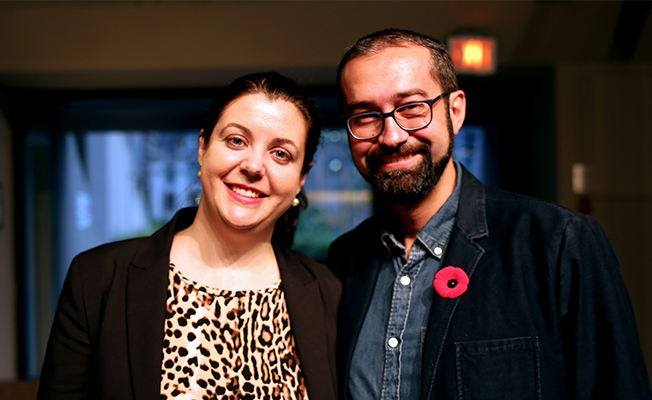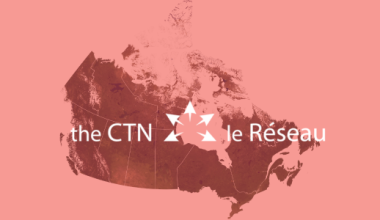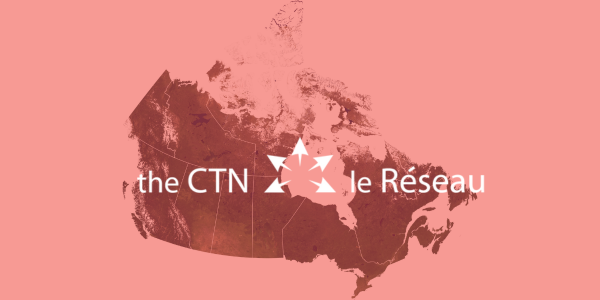
During the height of the AIDS epidemic in the 1980s, it was used to combat nausea, wasting, and anorexia. Today, it’s used for anxiety, depression, and recreation. We’re talking about cannabis, and the question researchers are now asking is if the medicinal plant could potentially prevent or slow down the inflammatory aspects of HIV-related illnesses.
This is the question CTN Investigators Drs. Cecilia Costiniuk and Ali Jenabian address in their thorough editorial review of cannabis research in HIV and inflammation, recently published in the journal AIDS.
Drs. Costiniuk and Jenabian reviewed the pharmacological properties of delta-9-tetrahydrocannabinol (THC) and cannabidiol (CBD), the two most well-known chemical compounds, called cannabinoids, with medicinal properties found in the cannabis plant. They also explored the various ways these cannabinoids could be beneficial for people living with HIV.
“Humans have cannabinoid receptors throughout their bodies, including the gastrointestinal tract, and produce natural cannabinoids. Natural cannabinoids are responsible for feelings such as the ‘runner’s high’,” said Dr. Costiniuk. “While the psychoactive effects of THC are well-known, both THC and CBD have effects on immune function and systemic inflammation,” explained Dr. Jenabian.
It is these potential anti-inflammatory and immunomodulatory properties that make cannabis particularly relevant to HIV research.
“The chronic systemic inflammation and immune activation experienced by people, even when they are fully suppressed on ART, is what can lead to higher rates of some chronic diseases, such as heart disease,” Dr. Costiniuk explained.
This persistent inflammation is due to the physical effect HIV has on the health of the gut during the early stages of infection. Ultimately, the loss of CD4 immune cells in the intestines leads to gut microbes leaking out into the body, contributing to immune dysfunction and inflammation.
Studies have shown that both CBD and THC have anti-inflammatory effects that could help curb this persistent state of inflammation. There is also research showing that these cannabinoids could help the body reverse the damage to the gut, which would reduce HIV-related inflammation at the source.
“The potential to decrease HIV replication could be very important for reducing the viral reservoir and may contribute to cure research,” Dr. Jenabian added.
But the researchers stress, don’t run to your nearest dispensary just yet.
“The most important thing to realize when learning about this area is that much of the research that has been done is in animals, which rarely translates directly to humans,” they explained. “The results in humans have not always been as straightforward as in animal models.”
This is partly to do with physical differences in physiology and metabolism but also because the doses used in animal studies, relative to body weight, are much higher than in human studies.
However, the research that has been done in humans have been short term and on a small scale, and none have looked at inflammatory markers or the HIV reservoir.
Drs. Costiniuk and Jenabian are leading a CTN pilot clinical trial (CTNPT 028), which will test the tolerability and safety of two different ratios of THC and CBD in an oral capsule taken over a three-month period. The researchers will measure things like quality of life, as well as inflammatory markers and markers of HIV reservoir size. The information gathered in this study will be used to design and launch a larger clinical trial which will focus more specifically on immune function and the viral reservoir.
Drs. Costiniuk and Jenabian also lead the CTN’s Cannabis Working Group along with Community Advisory Committee Chair Enrico Mandarino. The first meeting of this working group was held in Montreal on October 17, 2018, the day of cannabis legalization in Canada. So far the working group has been involved with two grant applications, multiple collaborative publications, and its members have co-chaired the CIHR-funded symposium, “Cannabis and People Living with HIV: At the crossroads between neuropsychology and inflammation,” which was held in Montreal in April, 2018. Stay tuned for more news to come in the upcoming years!






